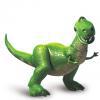January 25, 2015 - 15:00

I am a Korean adoptee. I was adopted at five months by white parents, don't remember anything about it, and don't care to try and find the person who gave birth to me. I get a lot of questions from people who feel entitled to hear our story, but I don't mind that much-- the average person doesn't know much about the adoption process in America. It's a good teaching moment.
I've always known I was Korean; my parents were very open about my adoption, and from infancy to fourteen I attended a Korean culture camp thrown by my adoption agency every summer. It was when I was eight, however, that I learned I wasn’t white. It was, oddly enough, during a math lesson when my teacher decided it would be a good idea to teach the first -and only- history lesson my classmates and I would ever receive in my eight years at the school. She explained that the Klu Klux Klan was a group of white Christian men who would hurt and kill black people, but leave other white Christian people alone.
“Oh. So...my family would be okay?” I asked. I was fairly certain that they were safe from attack as they were not only white, but faithful Catholics as well, but I wanted to be sure.
“No, you’re Asian.”
“What?”
“I said no, because you’re Asian.”
That night I had an illuminating conversation with my mother during which I learned that Asian and white were two separate things, and the world was not divided into only black and white people.
Years later, my Korean friends started pulling candy out of their school mailboxes, which were usually used by teachers to return assignments outside of class hours. I learned that the new math teacher, Jieun (an American-born Korean), was responsible. She was well known for favouring the Korean students (all of whom lived, aside from me, lived in Korea when not being educated in the US) though no one else seemed to like her. When I jokingly complained to a friend about not getting any, she laughed and said that maybe I "just wasn't Korean enough" -- after all, my parents were white, I spoke English fluently, and I didn't know a lick of Hangul.
It wasn’t until I was eighteen when the word “erasure” was added to my vocabulary, and suddenly I had a word to use when the only time Asians were mentioned in five years of American history classes was the three sentence paragraph about Japanese internment camps of World War II. It gave me a word for my math teacher’s disregard, for being called a twinkie (yellow on the outside, white on the inside), for being called “foreign child” in high school by the girl who grew up alongside me since we were two. It gave me a word for never being “Asian enough” but also never being white enough for people to care or for it to matter.
